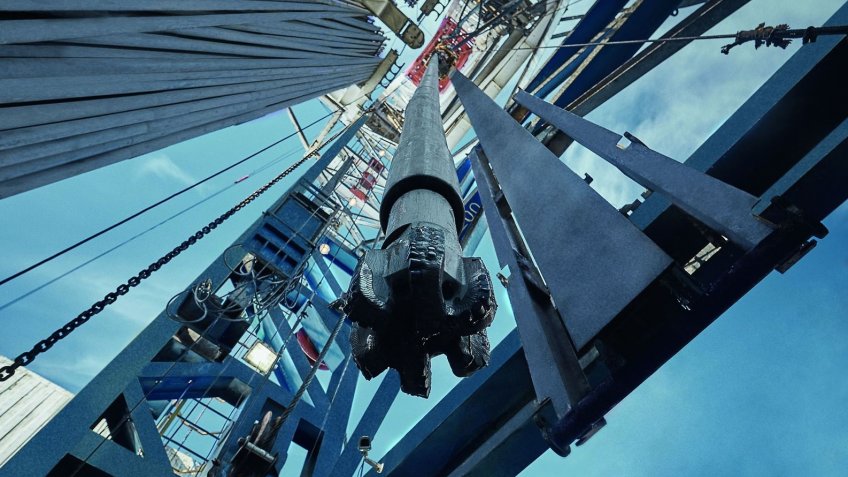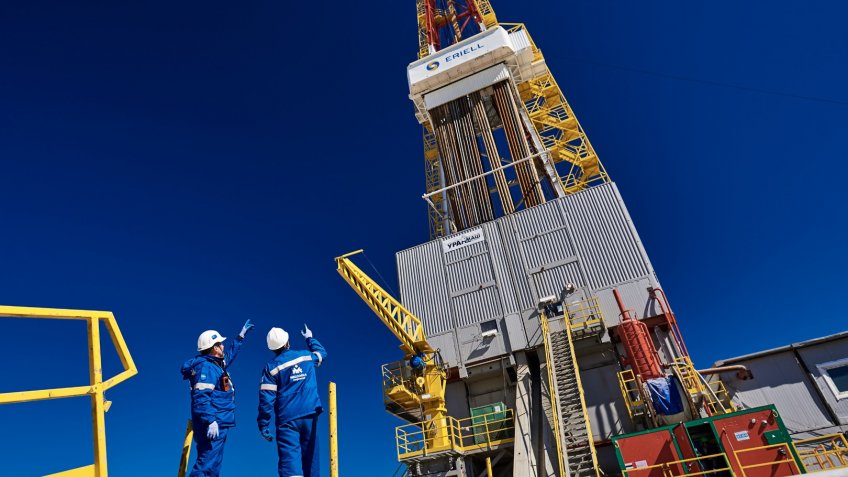
A test site for energy technologies may be built in Sablino. It is necessary for testing the equipment designed for drilling of oil and gas wells, as well as the development of hydrocarbon deposits. Forpost decided to find out what this project is about, whether domestic companies are interested in it, and why they decided to implement it just near St. Petersburg.
Russian energy corporations were among the most affected by the Western sanctions imposed in 2014. At that time, Washington and the EU banned the supply of software for hydraulic fracturing modeling, any equipment technologically related to production on the Arctic shelf, many other installations, units, and parts required in the industry, up to pumping units.
At the same time, the dependence on imports was enormous. Even now, seven years later, its share in the oil and gas sector is about 60%, and for certain types of equipment and services necessary for unconventional field exploitation, it exceeds 80%. Naturally, this does not contribute to the growth of the state’s energy security, because at any moment the lack of a sufficient number of drilling rigs, their components, and other products demanded by the mineral complex can reach a critical point.
The process of import substitution is certainly underway, but its pace does not always coincide with the expectations of subsoil users. And the quality of analogs produced in Russia often leaves much to be desired. Cases, when equipment breaks down just after starting work, are not unique.
"Unfortunately, today in the Russian Federation the system of complex approbation and quality determination of highly intelligent technical means used for hydrocarbons prospecting, production, and processing is insufficiently developed. To change the situation, we need to create test sites where experts could assess the operational reliability of serial and prototype production samples. Including when they are used in permafrost and ultra-low temperatures. And then issue certificates of product compliance to manufacturers," says Mikhail Dvoinikov, head of the Arktika Center of Competences established at St. Petersburg Mining University.
The first such landfill may appear in Sablino as early as 2023. Scientists will improve methods of oil and gas recovery enhancement and test specialized equipment there. For this purpose, in particular, it is planned to drill three wells simulating the conditions of real fields. Two of them, vertical and directional ones, will be from 350 meters to 3 kilometers long, depending on business needs.
"Testing at this site will allow subsoil users to minimize the risks associated with equipment failure before the scheduled time, reduce the cost of warranty maintenance and minimize damage to the environment. Products of domestic manufacturers will become more competitive, and specialists who work with them will become more competent. Besides approbation of new technologies, advanced training courses for current employees of oil and gas companies will be organized here," says Mikhail Dvoinikov.
He specifies that six well models with built-in cryogenic installations are also planned for construction at the field. They will reproduce climatic conditions of Antarctica and allow improving technologies of drilling in ice. This is necessary for taking ecologically clean samples of water and bottom sediments of the unique Lake Vostok (it is located under the ice of the sixth continent, at a depth of more than 3700 meters). Besides, laboratories will appear in Sablino for scientific research related to the production, transportation, and storage of hydrogen.
The place for the testing ground is not chosen by chance. St. Petersburg Mining University's training and research base has been operating there for many years; here future oilmen get their first practical skills. Its infrastructure is impressive: drilling rigs, equipment for well operation, technological processes control and management station, various special equipment, administrative and living quarters.
“We have to give the students, who study such fields as “Oil and gas business”, “Technology of geological exploration of mineral deposits” and several other programs, not only theoretical knowledge but also practical skills. That is why before going for practical training they necessarily undergo an internship here, get acquainted with the equipment, which is also available for students from other cities and foreign universities - our partners. This is especially important today, under the conditions of a pandemic, when it is somewhat difficult to carry out industrial practical training due to sanitary and epidemiological restrictions," explains Dmitry Tananykhin, Dean of the Oil and Gas Department of Mining University.
He calls the plan to expand this base to the level of a testing ground for energy technologies "a promising line of development". He assures that the site will be in high demand. The RF Ministry of Industry and Trade holds the same opinion. They believe that the project "will turn out to be operationally effective".
"A survey of more than 30 oil and gas, service, and industrial companies resulted in a list of 270 critical nomenclature items and 7 technological areas of import substitution, which must be tested at the site, imitating a real field. Its creation will stimulate the emergence of more than 60 kinds of new domestic equipment, the formation of a market with a potential capacity of over 100 billion rubles, and provide about 10 billion rubles of additional tax revenue to the budget. The expected annual demand is 30-35 tests of equipment," said Deputy Minister Vasily Osmakov.
He made the statement during the enlarged meeting which took place in the St. Petersburg Mining University and was devoted exactly to the matters of creation of such a platform in the Leningrad region. In addition to the heads of the university and the Ministry of Industry and Trade of Russia, representatives of the administration of St. Petersburg, the Agency for Technological Development, and the Gazprom neft company also attended it. All of them confirmed the feasibility of the project and discussed its roadmap.
According to preliminary plans, technical documentation should be prepared by the middle of this year and the first phase of construction and installation work, including drilling of test wells, should be completed by the end of the next year. In this case, the first tests will be held at the test site as early as 2023.



